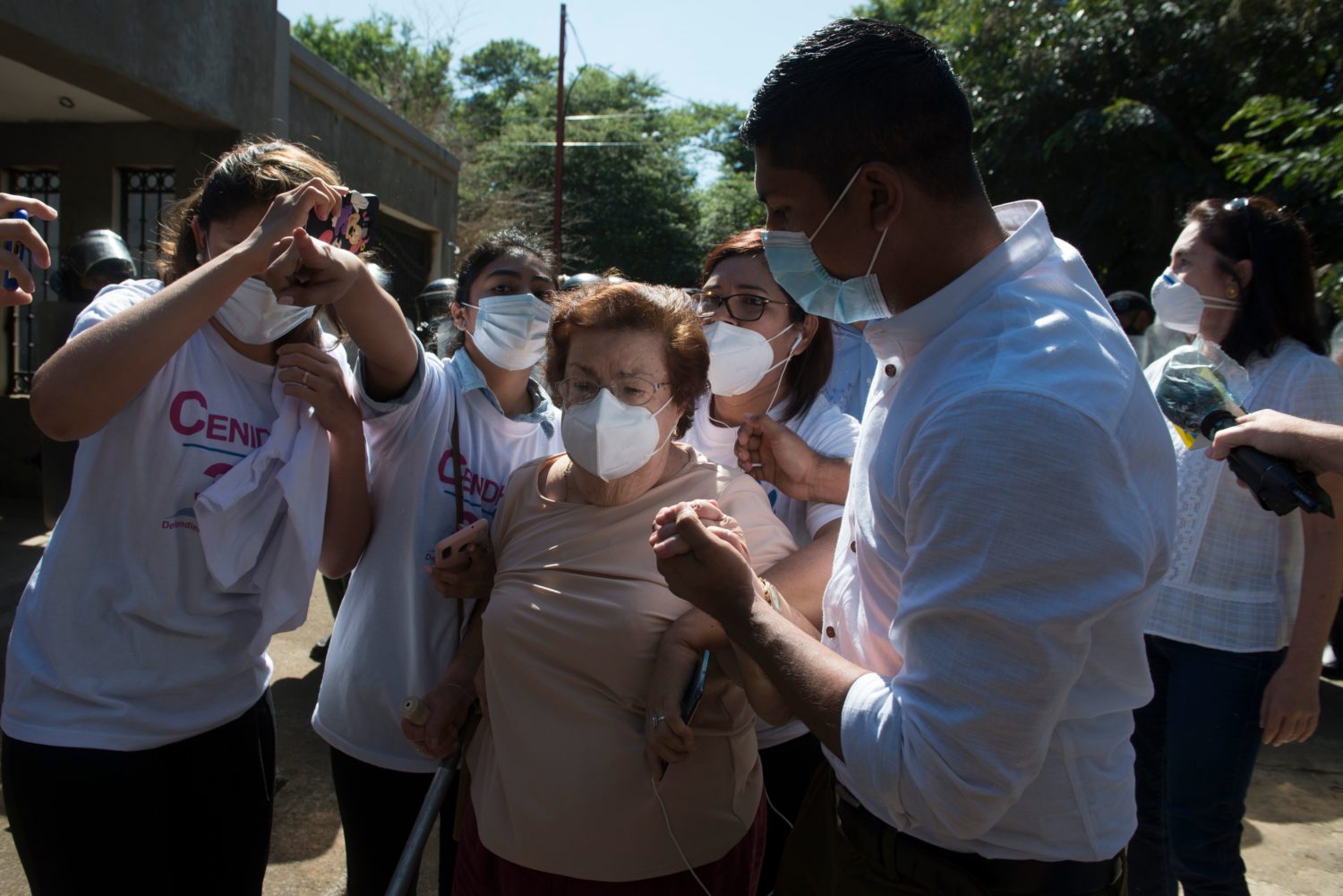Civil society organizations in Nicaragua suffer from persecution and grave violations to fundamental freedoms
Three years following the outbreak of the sociopolitical and human rights crisis in Nicaragua, repression persists against the victims of human rights violations and their family members; human rights defenders, […]

Three years following the outbreak of the sociopolitical and human rights crisis in Nicaragua, repression persists against the victims of human rights violations and their family members; human rights defenders, including defenders from the LGBTIQ, indigenous, and Afro-descendant communities; journalists; members of the opposition; and civil society.
The State of Nicaragua implements a strategy of hindering the work of human rights defenders through acts of intimidation, threats, systematic campaigns of stigmatization, confiscation of assets, and promulgation of laws that contravene international human rights standards, such as the Law on the Regulation of Foreign Agents and Law on Cybercrime.
The International Institute of Race, Equality, and Human Rights (Race and Equality) spoke with representatives of three civil society organizations that have experienced reprisals due to their work promoting and defending human rights. We asked them to share with us their assessments regarding the crisis, a call to action aimed at the international community, and a message for human rights defenders.
Marlin Sierra: Without providing a shred of evidence, the government has accused NGOs of conspiring against the State.
Marlin Sierra, a representative of the Centro Nicaragüense de Derechos Humanos [Nicaraguan Human Rights Center] (CENIDH), denounced the fact that the Nicaraguan government has accused non-governmental organizations of conspiring against the State. As such, the new legislation has the goal of “creating an extremely restrictive environment for the work of human rights defense, thereby significantly reducing its activities and deepening the existing state of terror in the country,” he stated.
In December 2018, CENIDH’s legal personality was arbitrarily cancelled and its assets seized. In February 2021, the Ortega government confirmed that it would illegally keep CENIDH’s offices in the cities of Managua and Juigalpa after converting them into agencies of the Ministry of Health (MINSA).
Despite this grave attack against the freedom of association, CENIDH has continued its work in defense of human rights and recognizes the commitment of international human rights bodies to Nicaragua. “They have not restricted themselves to condemning restrictive laws . . . [but rather,] have emphasized the essential role of defenders, human rights organizations, and civil society in promoting and protecting human rights,” declared Sierra.
Lastly, in his message to human rights defenders, Sierra quoted Dr. Vilma Núñez, the founding President of CENIDH: “Defending human rights entails consciously assuming the risk of confronting the sources of power that violate them,” and emphasized the importance of defining new strategies for continuing to resist and accompanying victims in the pursuit of justice.
Lottie Cunningham: The government has formalized administrative and bureaucratic barriers.
Lottie Cunningham, the founder of the Centro por la Justicia y los Derechos Humanos de la Costa Atlántica de Nicaragua [Center for Justice and Human Rights of the Atlantic Coast of Nicaragua] (CEJUDHCAN), declares that the government has established administrative and bureaucratic barriers in order to limit NGO operations, hinder access to foreign funding, and criminalize the work of human rights defenders.
Cunningham noted that, while the cancellation of the [NGOs’] legal personality has been the most visible expression of the violation of the freedom of association, “other negligent provisions and actions have been denounced that have reduced these organizations’ room for operation.”
“[The organizations] have been unable to access the necessary documentation as a result of the unfounded setback by State authorities to enable them to issue the corresponding proof. . . . Later, they impose fines that generate greater expenses for the associations,” denounced the defender.
Cunningham called on the international mechanisms of the IACHR and UN to continue demanding that the government review its laws, create a public space for discussing their content with civil society, actors, and experts in the [respective] fields, and allot additional time for public consideration of legislation, with an eye to guaranteeing that it is aligned with international human rights regulations and standards.
Lottie issued a message of resistance to her colleagues and the Nicaraguan people; “Let’s continue to fight for democracy and the rule of law by using national and international mechanisms, as well as performing acts of civic responsibility.”
Haydeé Castillo: Let us not allow the dream of the April Rebellion to fade.
Haydeé Castillo, the President of the Instituto de Liderazgo de Las Segovias [Las Segovias Leadership Institute] (ILLS), which was also seized by the police in December 2018 and has been converted into a school affiliated with the State’s Universidad Nacional Autónoma de Nicaragua [National Autonomous University of Nicaragua] (UNAN), believes the sociopolitical crisis in Nicaragua “has worsened,” given that the country is being buffeted by an economic crisis, the deterioration of the social fabric, and the despair of the Nicaraguan people, who “are resisting in a state of total defenselessness in the face of an extremely criminal system.”
Faced with this situation, the defender declares that dictatorships do not understand calls to action and appeals, and that one of the greatest challenges confronted by the Inter-American System and Universal Human Rights System is to “establish binding mechanisms of obligatory compliance for States that have ceased protecting their people.”
Castillo issues this message to her colleagues: “Let’s not permit the dream of the April Rebellion – to establish a system at whose core are human rights and respect for human dignity – to fade. Let’s continue making history; without our work, the victims will continue being unprotected by the justice system and the people of Nicaragua and the international community won’t be able to prove that we lived under a regime that committed crimes against humanity.”

